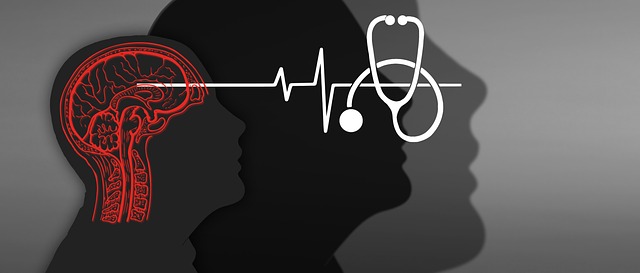Aurora Psychosis Therapy leverages advanced analytics and machine learning to transform mental health care. By meticulously collecting and analyzing patient data through self-reporting, clinical assessments, and provider observations, therapists gain insights into symptoms, treatment responses, and psychological states. Techniques like regression analysis, clustering algorithms, and natural language processing (NLP) uncover patterns, enabling personalized treatments tailored to individual needs. This data-driven approach enhances treatment effectiveness, prevents relapses, and improves patient outcomes, as demonstrated by Aurora's success in providing innovative communication strategies for psychosis management.
Mental health data analysis has emerged as a powerful tool for understanding complex psychological conditions. This article delves into the process of collecting, preparing, and interpreting mental health data, highlighting key techniques that reveal hidden patterns and insights. We explore clinical implications, emphasizing the shift towards personalized care. The case study of Aurora Psychosis Therapy demonstrates how data-driven approaches can revolutionize treatment, showcasing improved patient outcomes through evidence-based practices.
- Understanding Mental Health Data: Collection and Preparation
- Techniques for Analysis: Unlocking Patterns and Insights
- Interpreting Results: Clinical Implications and Personalized Care
- Aurora Psychosis Therapy: A Case Study in Data-Driven Approach
Understanding Mental Health Data: Collection and Preparation

Understanding Mental Health Data is a foundational step in effective Aurora Psychosis Therapy and related interventions. Collecting data involves various methods such as patient self-reporting, clinical assessments, and observational notes from healthcare providers. These sources provide rich information on symptoms, treatment responses, and psychological states. However, preparing this data for analysis requires meticulous attention to ensure accuracy and consistency. Standardizing data formats, validating measurements, and addressing potential biases are crucial steps in the preparation process.
Proper data collection and preparation lay the groundwork for insightful analysis, enabling evidence-based decisions in mental health policy analysis and advocacy. Moreover, understanding the nuances of data can inform the development of effective burnout prevention strategies for healthcare providers, ultimately enhancing patient care through Conflict Resolution Techniques tailored to individual needs.
Techniques for Analysis: Unlocking Patterns and Insights

In the realm of mental health data analysis, a myriad of techniques are available to unlock patterns and insights that can profoundly impact patient outcomes. These range from statistical methods like regression analysis and clustering algorithms to more advanced techniques such as natural language processing (NLP) for analyzing textual data from therapy sessions or self-reported surveys. For instance, Aurora Psychosis Therapy leverages sophisticated analytics to identify trends within their patient population, enabling them to tailor treatments effectively. By sifting through large datasets, these methods can reveal hidden correlations between various factors—such as stress levels, lifestyle choices, and treatment responses—that might not be immediately apparent through traditional observation.
Moreover, the integration of machine learning algorithms allows for predictive modeling, helping professionals anticipate potential mental health crises or recurrence of conditions like depression or burnout. This proactive approach is particularly valuable for organizations like Stress Management Workshops Organization and Burnout Prevention initiatives, which focus on early intervention strategies. By understanding the intricate relationships within the data, mental health practitioners can design more personalized interventions, ultimately enhancing the effectiveness of treatment programs and preventing relapses, as seen in Depression Prevention campaigns that utilize advanced analytics to target at-risk individuals.
Interpreting Results: Clinical Implications and Personalized Care

Interpreting data from mental health assessments is a critical step toward providing effective personalized care. The results can offer valuable insights into an individual’s unique challenges and strengths, guiding treatment strategies tailored to their specific needs. For conditions like psychosis, where early intervention can significantly impact outcomes (Aurora Psychosis Therapy), identifying subtle patterns in symptoms over time becomes essential. This data-driven approach allows mental health professionals to adapt treatments, ensuring they are aligned with the evolving needs of the patient.
By analyzing trends, healthcare providers can make informed decisions about the effectiveness of certain therapeutic modalities, such as Social Skills Training or Risk Management Planning. This information is crucial for refining existing practices and developing innovative strategies that enhance long-term well-being. Understanding the clinical implications of data analysis enables professionals to deliver more precise, targeted interventions, ultimately improving patient outcomes and fostering a more personalized care experience.
Aurora Psychosis Therapy: A Case Study in Data-Driven Approach

Aurora Psychosis Therapy is a pioneering example of how data-driven approaches can transform mental health care. By leveraging advanced analytics and machine learning algorithms, this therapy program offers personalized treatments tailored to individual patient needs. Through the analysis of vast datasets, including patient histories, symptom reports, and treatment outcomes, therapists gain valuable insights into the complex dynamics of psychosis.
This approach enables them to develop innovative communication strategies and stress reduction methods that address specific triggers and patterns unique to each patient. The success of Aurora Psychosis Therapy lies in its ability to combine traditional therapeutic techniques with data-backed interventions, ultimately enhancing anxiety relief and improving overall treatment efficacy.
Mental health data analysis has evolved into a powerful tool for understanding complex conditions like psychosis. The case study of Aurora Psychosis Therapy demonstrates how advanced techniques can personalize treatment, leading to improved patient outcomes. By unlocking patterns within mental health data, healthcare professionals can make informed decisions, ensuring a more tailored and effective approach to care. This innovative use of data highlights the potential for revolutionizing mental health services in today’s digital age.














